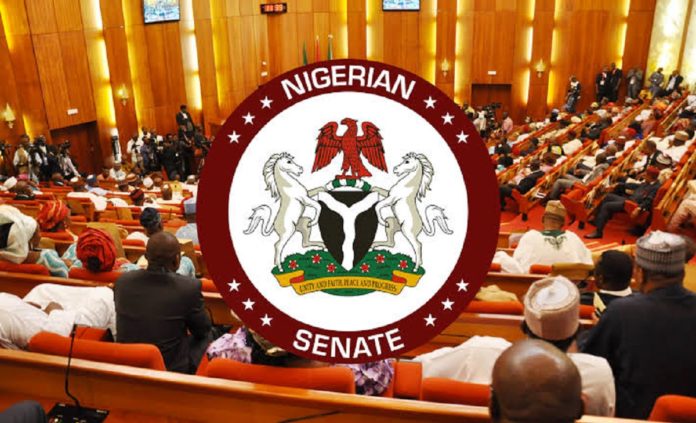Nigeria’s Senate has approved President Bola Tinubu’s request to borrow over $21 billion from external sources to support the country’s 2025 budget, a senior lawmaker confirmed late Tuesday.
The borrowing plan, submitted by Tinubu in May, is aimed at bridging budget deficits and funding key infrastructure and development projects. Lawmakers say the loans will come from multilateral and bilateral lenders, including the World Bank and African Development Bank.
Senate President Godswill Akpabio described the move as necessary to meet pressing national needs, but critics warn the rising debt could further strain the economy.
Nigeria, Africa’s largest economy, has struggled with falling oil revenues, a weakening naira, and inflation above 30%. Tinubu’s government says the funds will be used to stimulate growth, boost job creation, and finance transport, education, and health projects.
With this approval, Nigeria’s debt burden is expected to climb, raising concerns among analysts about sustainability and long-term repayment.
HOW THE NEW LOAN WILL BE UTILIZED: ADC COALITION WILL CRY BITTERLY, PBAT IS A MASTER STRATEGIST ‼️
Breakdown of some projects tied to the recent loan request sent to the Senate by President Tinubu. Tinubu plans on borrowing 21.5 billion dollars, 2.1 billion Euro, and 15 billion yen in a six-year borrowing plan. The plan was approved by the Senate yesterday.
According to Tinubu, these funds will primarily be directed towards critical infrastructural projects, including railways and healthcare, among others. Some of the projects to be funded include:
Construction of the eastern rail line (Port Harcourt to Maiduguri railway) – $3 billion
Construction of the Akwanga–Jos–Bauchi–Gombe dual carriageway, with a four-year completion horizon – $1.33 billion
Two separate allocations — $1.14 billion and $1.07 billion — will fund the Eastern and Western Super Grids, respectively.
Other Chinese-backed projects include $100 million for the Presidential Power Initiative aimed at improving electricity distribution infrastructure.
$116 million for high-voltage transmission lines to evacuate 700 megawatts of electricity from the Zungeru hydropower station.
$508 million will go to modernising Nigeria’s eastern port infrastructure
$2 billion for the Lagos Green Line Rail Project
$596.2 million for the procurement of rolling stock on the Kaduna–Kano section of the national rail modernisation efforts.
Youth Entrepreneurship Investment project with a five-year implementation period to be funded by AfDB- $100m
Sokoto State Health Infrastructure Project to be funded by AfDB – $45m
Yobe State’s Integrated Climate Action Project to be funded by AfDB – $50m
Lekki Access Road — also known as the 7th Axial Road Project — with a timeline of three years to be funded by Export Credit Agency – $250 million
Nigeria Border Security Project under the second phase of a broader national security initiative to be funded by Export Credit Agency – $540 million
Lagos-Calabar Coastal Highway project to be funded by Export Credit Agency – $700 million.
Emergency food security programme, to be funded by Japan’s International Cooperation Agency (JICA) – ¥150 billion
Senator Sani Musa clarified that the borrowing plan spans a six-year disbursement period, not solely the 2025 fiscal year. He also noted that Nigeria has not defaulted on any of its existing loan repayments.
Senator Victor Umeh (Anambra Central) threw his weight behind the borrowing plan, expressing satisfaction with the long-awaited investment in southeastern infrastructure.
“This is the first time I’ve seen $3 billion allocated to rebuild the eastern rail line. That alone justifies my full support,” he said.







